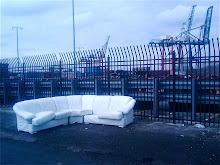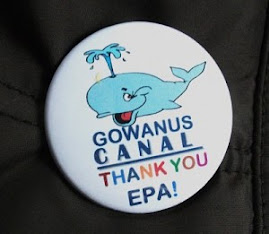*** Please sign a petition to protect these rules - HERE ***
Here is part of the press release from Friends of the Earth.
An Emission Control Area to reduce air pollution from ships in the waters around North America goes into effect today, two years after the International Maritime Organization approved an application from the U.S. and Canada to create this lower pollution zone. The rule’s measures will prevent tons of harmful pollutants from entering the atmosphere from ships’ smokestacks. Many of these air pollutants, like particulates and smog-forming compounds, significantly impact the health of coastal communities and can travel hundreds of miles inland as well. The EPA estimates that implementing the Emission Control Area will prevent between 12,000 and 31,000 premature deaths each year across the U.S. and save billions of dollars in health care costs by 2030.
The promise of cleaner air for tens of millions of Americans comes from the requirement for ships, over a period of time, to burn fuels with lower and lower levels of sulfur, thereby reducing harmful emissions which are known to be carcinogenic, asthma inducing and otherwise harmful to human health. As the FOE press release states, these rules and the conditions for the phase-in of lower sulfur fuels were arrived at over a period of years - 5 years of negotiations at the IMO (International Maritime Organization), in fact - and the shipping industry has been aware of the coming rules and has worked with the EPA to work out contingencies to address conditions that make it difficult for ships to meet these requirements - for example, unavailability of low sulfur fuel, lack of compatibility due to certain engines, age of ship, etc.
There has been some negative reaction to the prospect of the new ECA applying to certain regions, such as Alaska, where some have stated that fuel expenses will increase by 8% if shipping companies are forced to use the cleaner burning fuel, and those additional costs will be passed on to Alaska's consumers in their food prices, goods, etc. The EPA estimates that in 2015, when the full requirements of the ECA will come into force, the more expensive fuel will add "$18 to the cost of shipping a 20-foot container." I'll leave you to assess whether that is too much of a burden.
However, the industry that is perhaps now doing the most to undermine these new rules, is the cruise ship industry.
Yes, that's right, the cruise ship industry - comprised of many companies that pay very little tax, like Carnival's 1.1% rate - are saying the added cost is unmanageable. They're not saying it so much out loud, but in the backrooms of Washington they're lobbying and arm twisting to try to water down these new life saving rules. Here's what the Friends of the Earth press release says:
Yet even in the face of progress, the cruise industry is working to water down the ECA, lobbying Congress and the Obama administration to put in place measures that would allow it to bypass the ECA’s protective rules. The cruise industry claims that it will have to avoid North American waters if the ECA’s standards go into effect, citing increasing costs due to the switch to less polluting fuel and replacing ship equipment to accommodate that fuel. The industry’s recent efforts include attempts to amend the ECA to exempt cruise ships from the cleaner fuel requirements in less populated areas like Alaska and Hawaii. If the industry’s efforts are successful, it will significantly increase risks for asthma and other air pollution related diseases.
The press release continues -
“The shipping industry, including the cruise lines, fully participated in the IMO’s five years of deliberations on the treaty amendments that included the current ECA protections and the adoption of the North American ECA itself,” observed David Marshall, Senior Counsel with the Clean Air Task Force and a participant in those negotiations. “The cruise line industry has had several years to prepare for its requirements, but instead is mounting an 11th hour effort to convince Congress and EPA to adopt proposals that would violate the international treaty that the United Stated has ratified and is bound by.”
To combat these lobbying efforts, Friends of the Earth has started a petition to protect these landmark rules to reduce air pollution from ships. The petition is addressed to EPA Administrator, Lisa Jackson, and Secretary of State, Hillary Clinton.
You can find the petition HERE.
I urge you to sign this petition so that we can be confident that the full implementation of the new ECA is successful. If it is, it will be yet another step in the direction of cleaning our air and our lungs of the harmful emissions from ships.
We know what is required: Stopping the use of bunker fuel - the ultra dirty diesel that ships currently use that is thousands of time more dirty and harmful than the diesel that trucks use; the implementation and use of technologies such as shore power, that have the potential to eliminate emissions created by ships when they are in port, benefiting nearby vulnerable residential populations, by plugging them in to the electricity grid instead of idling; and, yes, the creation of ECAs, such as this one, that will reduce harmful emissions created by ships using our coastal waters.
Do we need any more reasons?
Here's one more, via this article - here - "(The EPA) estimates that by 2020, the overall cost of implementing the rules will be $3.2 billion while monetized health-related benefits in the U.S. could be as high as $110 billion."
Now that's a good deal.
ED. NOTE (8/6/12): The introduction of the ECA is only part of the solution to the ship pollution problem. The "cleaner" fuel to which I'm referring, even when the most stringent 2015 rules come into effect, will still be nearly 70 times dirtier than the diesel that trucks can legally use. After 2015, there will still be significant emissions produced by ships at sea, and when they idle while in port. The use of these cleaner fuels should not make us feel complacent about the impacts of ship emissions, particularly when they impact dense residential populations. The most effective way to eliminate harmful emissions of ships while in port and protect vulnerable port-side communities from the impact of these emissions is the use of shore power.


